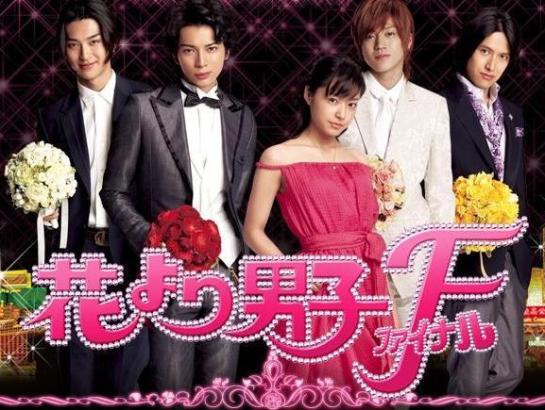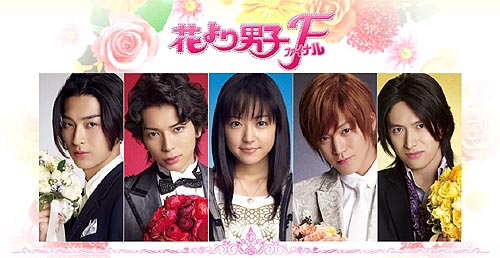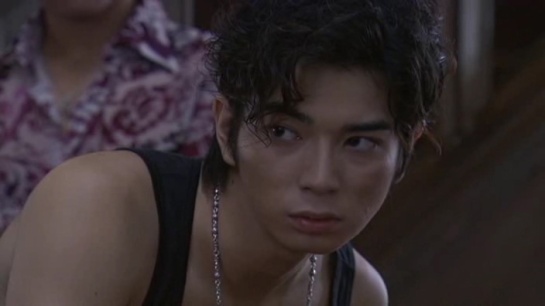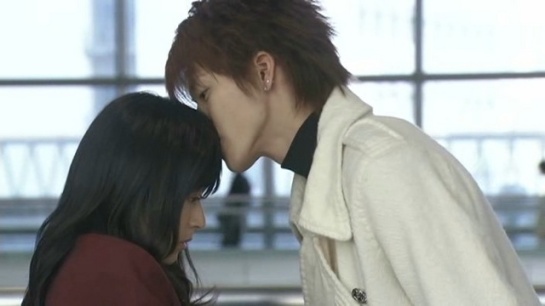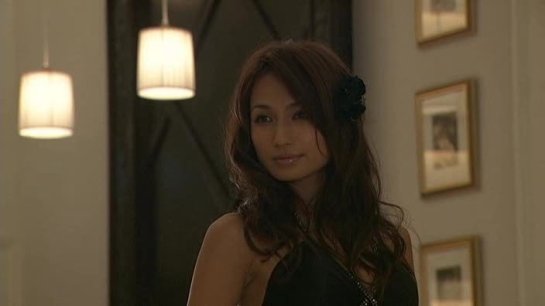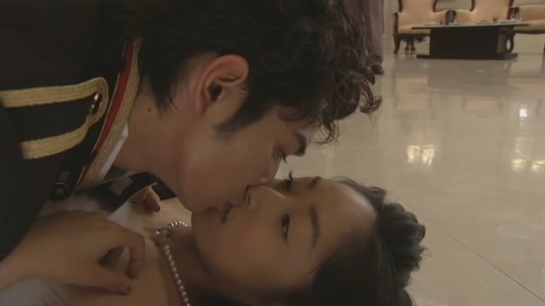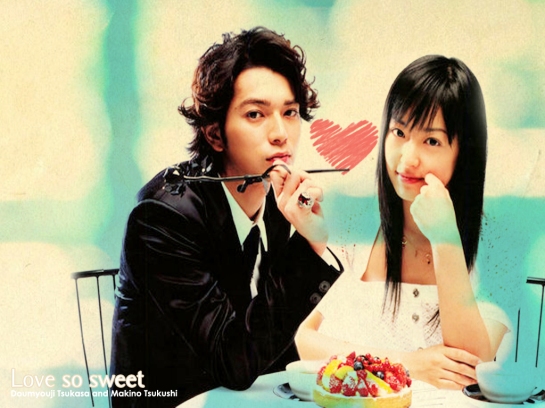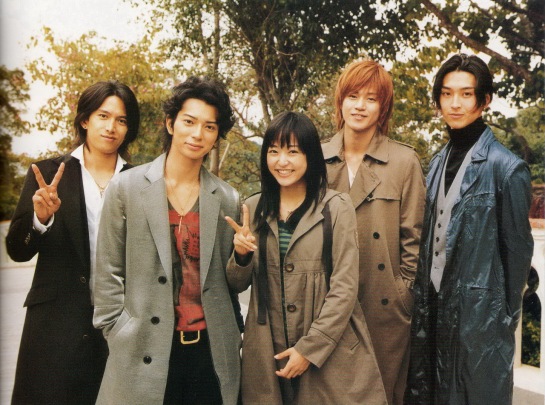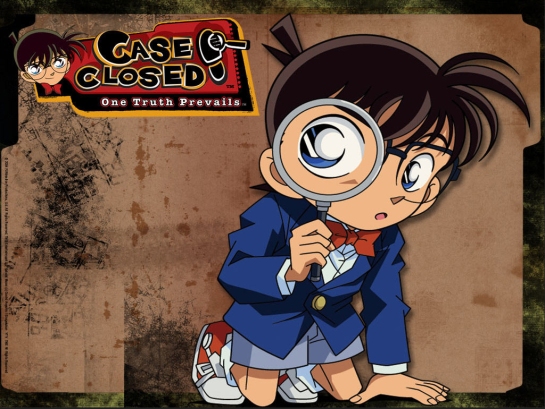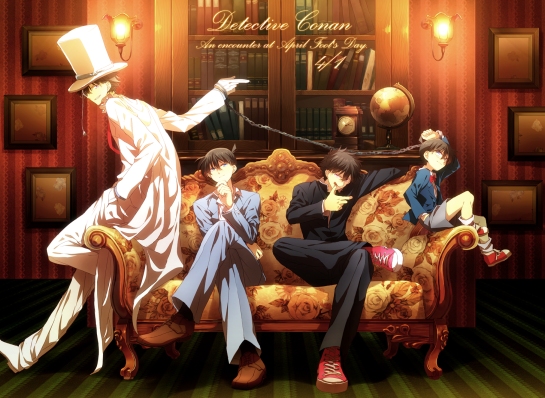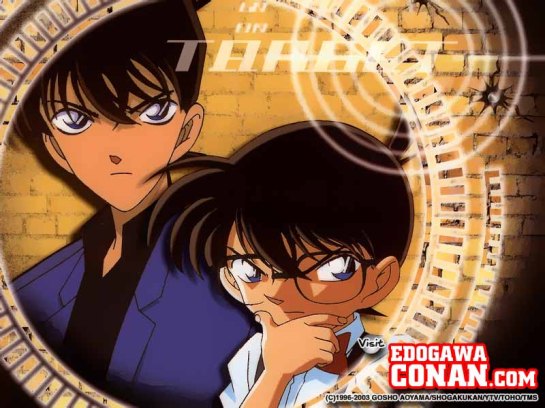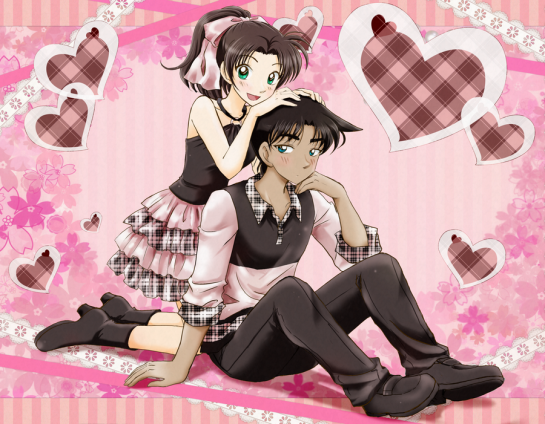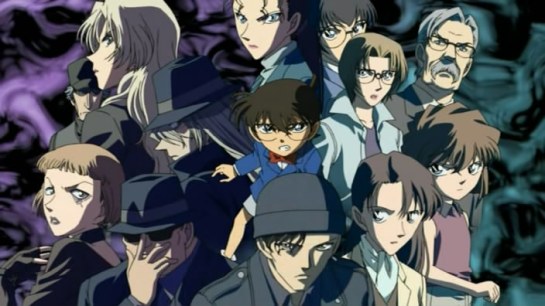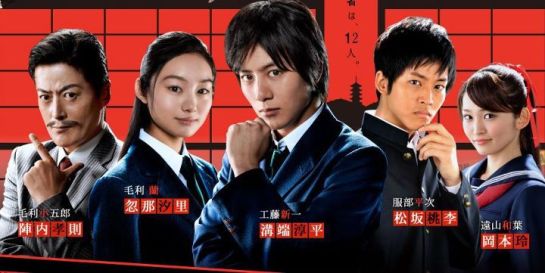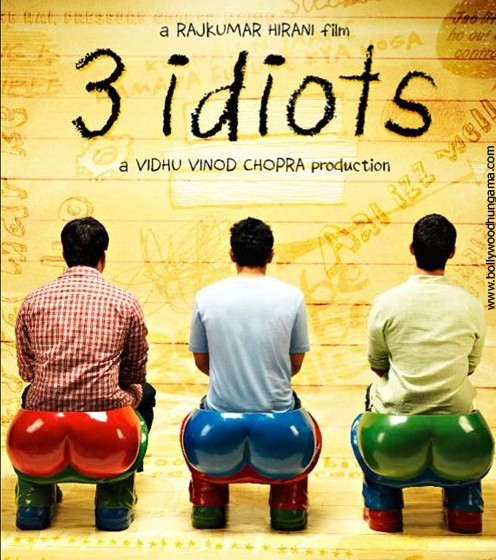
Now that I have begun to become addicted to Bollywood films, I have come to watched back-to-back films starring one particular actor – Aamir Khan. One of the multiple Khan’s in the movie industry, Aamir Khan has established himself as a solid actor with a versatile range in his roles. Here, he takes on a wide-eyed, curious student who desires to learn – not by simply memorizing a textbook definition, but through using his own trials and methods to observe the world around him. His unconventional approach to learning is taken in awe by his two roommates, Farhan and Raju, and the three boys form a sort of ragtag, three musketeer group – going through all sorts of goofy shenanigans and emotional trials together. To put it in plain terms – the 3 Idiots is a light-hearted comedy about three technology students who discover that there’s more to life than simply studying by the book, and that perhaps even the wisest of us all need to learn a lesson or two sometimes.
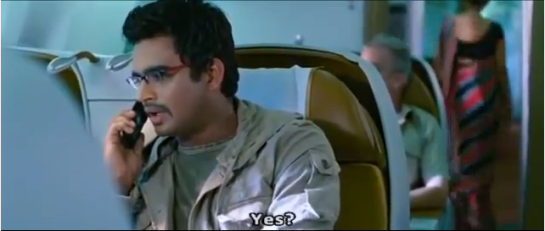
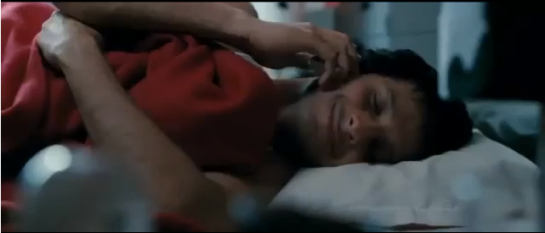
We start off the movie with a man on a plane departure, who receives a shocking phone call. Thinking quick on his feet, the man pretends to faint, and because of this “medical issue” the plane is forced to emergency land. Once at the terminal, a taxi cab is called, and the miraculously recovered patient dials a number, which wakes up his sleepy, white-robed friend. The two friends, Farhan and Raju, are startled to hear of the reported sighting of their long-lost friend Rancho, who they had tried (unsuccessfully) to locate for ten years. Both men dash towards their old university campus, climb up onto the rooftop of the engineering tower, and burst out expecting to see their old friend. They are instead met by their old nemesis, Chatur, who is takes a moment to gloat of his current financial status to the two friends. He whips out his phone and begins listing his material possessions:
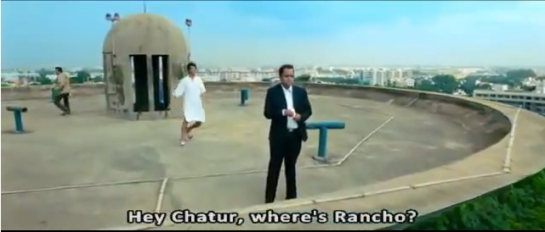
“Don’t eye my wife. Check out the mansion behind her, idiots. $3.5 million. Swimming pool – heated! Living room – maple wood flooring. My new Lambhorghini 6496 cc (sucks in breath) – very fast.
While the two boys are confused as to why Chatur called them out to randomly boast, Chatur scrapes away a section of the tower wall, in which the date 5 September is inscribed. There’s a brief flashback the boys’ college days, in which Chatur strikes a bet with an unseen boy, in which he asks him to meet ten years later, in order to determine who is more successful. The boy is, of course, Rancho, and upon further questioning, the two boys discover that he is currently residing in Shimla.
The road trip unleashes a breathlessly beautiful song, Behti Hawa Sa Tha Woh (He was Like the Breathless Wind), which essentially sums up the young man Ranchhoddas Shamaldas Chanchad.
- He was as free as the wind,
- He was like a soaring kite,
- Where did he go? Let us find him.
- He was as free as the wind,
- He was like a soaring kite,
- Where did he go? Let us find him.
- We were led by the path we took,
- While he carved a path of his own,
- Stumbling, rising, he walked carefree.
- We fretted about tomorrow,
- He simply reveled in today,
- Living each moment to the fullest.
- Where did he come from?
- He who touched our hearts and vanished?
- Where did he go? Let us find him.
- In the scorching sun, he was like a patch of shade,
- In an endless desert, like an oasis,
- On a bruised heart, he was like a soothing balm.
- Afraid, we stayed confined in the well,
- Fearless, he frolicked in the river,
- Never hesitating to swim against the tide.
- He wandered lonesome as a cloud,
- Yet he was our dearest friend,
- Where did he go? Let us find him.
Farhan flashes back to his childhood, leading up to the first time he met Rancho. Farhan seals his family’s wishes when he applies and gets in the Imperial College of Engineering (ICE), where his bags are carried by the witty busboy Millimeter.
Millimeter: These engineers call me Millimeter. For eggs, bread, milk, laundry, finishing journals, copying assignments, I’m your guy. Fixed rates. No bargaining.
Farhan: (Sees a small litter of puppies) Hey wait, hold this. (Begins to take out his camera).
Millimeter: Meet Kilobyte, Megabyte, and their mother, Gigabyte. Go ahead, click. Their family doesn’t bite. (Farhan takes several photo shots).
Farhan meets one of his roommates, Raju Rastogi, who is a deeply devout religious student. For a somewhat generate tip, Millimeter gives the two boys one piece of advice – wear their best underwear tonight.

Cue freshman hazing night, in which the newly admitted technology students must bare their derrieres to the upperclassmen. It is at this moment that Farhan looks across the room and sees Rancho for the first time. 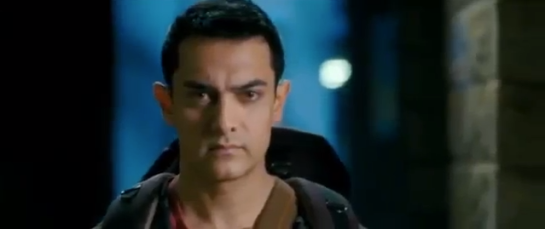
At the appearance of “fresh meat”, two of the seniors corner him, one making fun of his name and the other pouring water into his pants. Rancho’s whispers his mantra to himself, “Aal izz well, aal izz well.” In a desire to force him to abide their threat, one of the seniors orders a student (a back-then version of Chatur) to translate their warnings into Hindi. Chatur, born and raised outside of India, uses the dictionary phrase “urine-expulsion” instead of the colloquial “pissing”, and Rancho uses the resulting uproar to escape into one of the dorm rooms.
Upset at the escape of one freshman, and not willing to seem weak in front of the audience, a senior boy angrily raps on the door and gives an ultimatum – if he doesn’t get out by the time he counts to 10, then he’ll carry out “urine expulsion” on his door all semester. Rancho, in a fit of genius, quickly scans the room and comes with the idea of a little contraption – he takes a metal spoon and ties it to an electrical wire, holding it in place with a ruler and metal clip. He then sticks the spoon underneath the door. When the urinator unzips his pants and begins to carry out his vengeful vow, the urine, which is composed of saltwater, touches the conducting piece of metal and…well…a bit of electrocution occurs. The senior falls on the ground, curled up in pain, and Rancho steps out, having gained the awe of the freshman class.
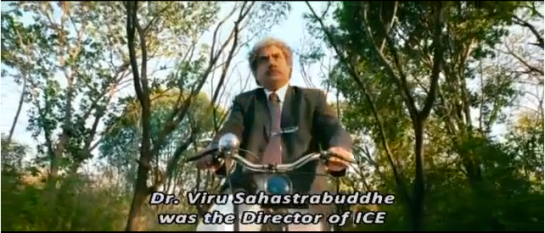
The next day, a the head principal of ICE (Imperial College of Engineering) comes riding on his bicycle, carrying a bird and eggs, towards the boys’ dormitory. A severe authoritarian, he is nicknamed “Virus”, and is an immensely competitive and time-effective man. To save time, Virus updates his wardrobe with velcro shirts and pinned ties, trains himself to write ambidextrously, and allows a servant to shave and clip his nails while he takes his daily 7 and 1/2 minute nap.
When he arrives on the site, he quickly makes a demonstration out of the koel bird and eggs. It turns out that the koel bird is a bit of a ruthless specimen – it finds another bird’s nest to hatch its eggs in, and when the original eggs hatch, it pushes them off the nest, to their death. The hundreds and thousands of students are just like the cracked eggs, cracked in order to let the small number (the 200 freshman) of healthy eggs remain intact. Continuing his lesson, the professor instructs the students to treat life as a race, to compete or die.
Launching into another allegory, the professor reaches into his shirt pocket and draws out a pen. This pen is no ordinary pen – it’s an “astronaut pen”, and can write forward, backwards, upsides down, and in zero gravity. When the professor was a student, this pen of excellence was passed down to him, and he has waited over three decades to pass down this pen to the next prodigy. The whole audience, except one member, raise their hands when the professor asks them if they’d like to be the one who receives the pen. When all hands are lowered, the un-raised hand, Rancho’s, goes up. Rancho asks the professor one question – instead of spending millions of dollars to develop a pen that could work in outer space, why couldn’t the astronauts simply have used a pencil?
There’s an uproar of laughter amongst the other students, much to the consternation of Virus, who is struck speechless at Rancho’s question. Embarrassed, angry, and a little bewildered, the professor responds that he would get back to the Rancho a little later, and stalks off.
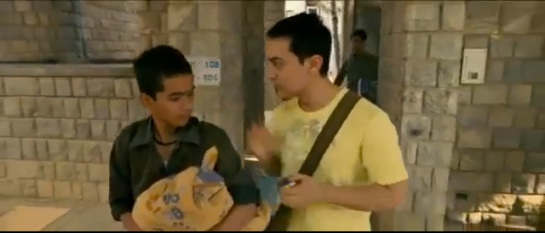
Back amongst the school hallways, the Millimeter conveys his awe to Rancho. When asked why he doesn’t join school, Millimeter responds that he doesn’t have the financial means to do so. Smiling, Rancho tells him that he doesn’t need tuition money to attend school – he simply needs a college uniform. With this as his key, he can audit any university course. If he get’s found out, he simply needs to buy a new uniform, and attend another college.
On one of the first days in his new class, a professor, unnerved by the enthusiastic nature by a certain yellow-shirted student, asks him to stand up and name the definition of a machine. Rancho explains to the whole class that a machine is any instrument that makes life a little easier, giving the example of a fan and a pant-zipper. Not amused, the professor picks on another student, Chatur. Chatur has memorized the textbook definition and recites it, perfectly, word-by-word to the professor.
Chatur: SIr, machines are any combination of bodies so connected that their relative motions are constrained and by which means, force and motion may be transmitted and modified as a screw and its nut, or a lever arranged to turn about a fulcrum or a pulley about its pivot, etc. Especially, a construction, more or less complex, consisting of a combination of moving parts, or simple mechanical elements, as wheels, levers, cams, etc.
The professor, a little teary-eyed, is impressed by Chatur’s answer. Rancho rolls his eyes throughout this Chatur’s proud monologue, and at the end makes the point that he essentially spoke the same thing – only in a simpler language. The professor tells him to either memorize the given definition, or fail the class. When Rancho tries to make the point of other books and their own definitions, he is promptly kicked out of class. But when he forgets his books, he comes back and makes a little monologue of his own…
Rancho: Instruments that record, analyze, summarize, organize, debate and explain information; that are illustrative, non-illustrative; that are hard-bound, paperback, jacketed, non-jacketed; with foreword, introduction, table-of-contents, index; that are intended for the enlightenment, understanding, enrichment, enhancement and education of the human brain through the sensory route of vision, sometimes touch.
Dumbstruck, the professor asks him what in the world he means. Rancho responds, “Books. I forgot my books sir. May I?”
Rancho’s uniqueness carries out to other matters – besides slipping in and out of any classroom (kicked out by professors), he would shower outside with a garden-hose at unconventional times during the day (rather than join the scramble for the shower stalls each morning), and take apart and fix machines at his spare time.
Another student, Joy Lobo, similar to Rancho in his passion for machines, only he currently is in a fix because he cannot complete his project deadlines. Joy had started a camera-attached helicopter, but due to his father’s illness and other issues, he still hasn’t finished. Virus extends his sympathies, but unfortunately cannot extend the deadlines. Just around the corner, Rancho eavesdrops on this conversation, and decides to see what he can do to help Lobo’s project. He salvages the incomplete helicopter from the trash and takes it back to his dormitory.
Farhan and Raju both can’t believe Rancho’s allotment of time on another student’s project when they have so many exams to study for. Rancho teaches them the mantra “Aal izz well”, which launches into an upbeat ditty:
- When life spins out of control,
- Just let your lips roll.
- Let your lips roll,
- And whistle away the toll. (2x)
- Yell – “All is Well!”
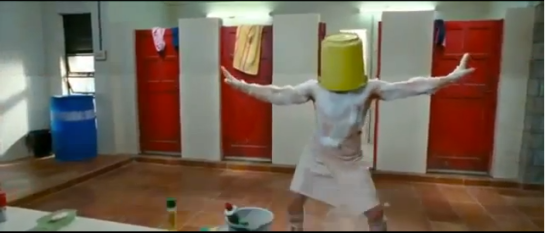
- The chicken’s clueless about the egg’s fate,
- Will it hatch or become an omelette?
- No one knows what the future holds,
- So let your lips roll and whistle away the toll, whistle away the toll…
- Yell – “All is Well!”
- Hey bro – “All is Well!”
- Hey mate – “All is Well!”
- Hey bro – “All is Well!”
- Confusion and more confusion,
- No sign of any solution.
- Ah! Finally a solution.
- But wait…what was the question?
- If the timid heart with fear is about to die,
- Then con it bro, with this simple lie.
- Heart’s an idiot, it will fall under that spell,
- Let your lips roll, and whistle away the toll, whistle away the toll…
- Yell – “All is Well!”
- Hey bro – “All is Well!”
- Hey mate – “All is Well!”
- Hey bro – “All is Well!”
- Blew the scholarship on booze,
- But that did not dispel by blues.
- Holy incense lit up my plight,
- And yet God’s nowhere in sight.
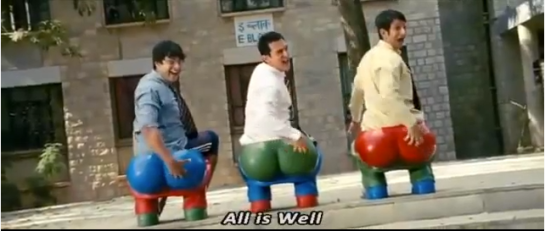
- The lamb is clueless for what it’s destined.
- Will it be served on skewers or simply minced?
- No one knows what the future holds,
- So let your lips roll, and whistle away the toll, whistle away the toll…
- Yell – “All is Well!”
- Hey bro – “All is Well!”
- Hey mate – “All is Well!”
- Hey bro – “All is Well!”
When the song is finished, Rancho has a “eureka!” moment, and the helicopter, much to the astonishment of the other boys, begins to fly. The camera swivels around as it captures the world around it. It humorously captures Chatur in his underwear, cramming for an exam. It flies higher and higher, eventually hovering right outside Joy’s window. The scene that the video camera captures stuns the boys, as they see Joy Lobo hanged in the middle of his room. When the boys rush upstairs, the find a dead student, and on the wall a suicide sentence – I QUIT.
At the funeral, Rancho confronts Virus, telling him that it wasn’t the physical pressure of the noose around Joy’s throat that killed him, but that it was the four years of mental pressure that the principal gave him. The next day, the principal is Indignant at being told, by a student, that the current education system is wrong. Rancho explains:
Rancho: Suicide is a bigger killer than disease. Something’s terribly wrong, sir.
Virus: I can’t speak for the rest, but this is one of the finest colleges in the country…we were ranked 28th, now we’re ranked No. 1.
Rancho: What’s the point, sir? Here they don’t discuss new ideas or inventions. They discuss grades, jobs, settling in the USA. They teach how to get good scores. They don’t teach Engineering.
Virus: (Furious) Now you will teach me how to teach?
In a fit of fury, Virus drags Rancho outside and pushes him inside a classroom midway through a lecture. He orders him to teach the entire class a lesson, and takes his seat, expectant of the humiliation of Rancho’s inadequacy at an engineering professor. Although a little uncertain at first, Rancho removes his book bag, quickly flips through the textbook, and ends up writing two words on the chalkboard. (Before you read further, examine the two words he has written down. See if you can notice anything familiar about them…)
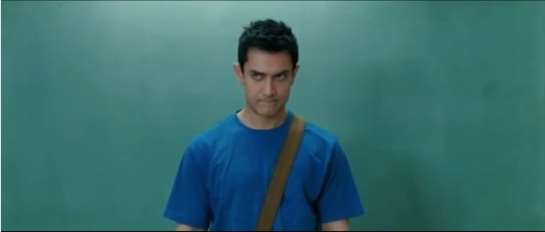
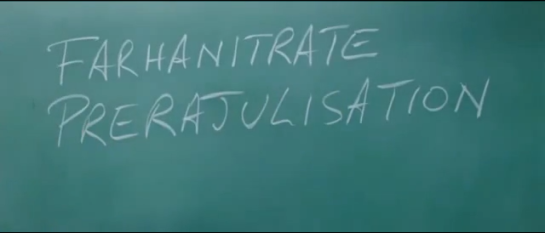
Rancho gives the entire class exactly thirty seconds to come up with the definition of these two terms, allowing the use whatever resources at their disposal, including their own textbooks. As soon as time commences, the entire class plunges into a frenzy, with students flipping haphazardly throughout their books (Virus steals another student’s textbook in order to double his efforts). When the time has elapsed, and no one has found anything, Rancho tells them to stop and rewind life back one minute. Did they feel curious, excited to learn something new? No, they weren’t. They simply frantically tried to find the answer. Rancho: “This is college, not a pressure cooker.”
And the meaning of the two words? They were simply complicated, chemical-ending based versions of his two roommates names – Farhan and Raju.
Back in his office, Virus ambidextrously writes two letters – one to the Qureshi family, the other to the Rastogi family – each informing the parents that their son has fallen into bad company. The boys travel to both Qureshi and Rastogi households, and leave with both paternal scolding and empty stomachs. Hungry, the three boys sneak into an Indian wedding, taking advantage of the banquet’s generous portions to fulfill their hunger.
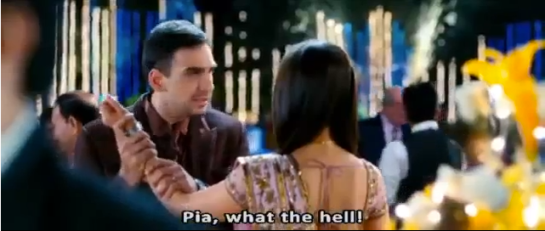
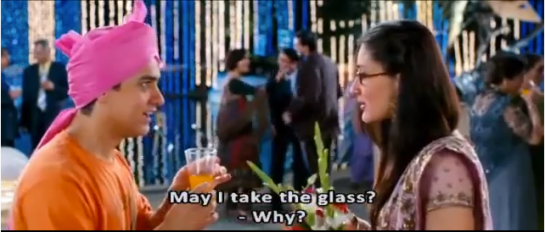
While seated, Rancho witnesses what he mistakenly presumes to be the groom getting angry at his bride-to-be, at not wearing the watch he sent her as a gift. When the gentleman walks away, Rancho intervenes and advises her not to marry him. He gives her a “practical demonstration”, where he purposely spills mint sauce on the man’s leather shoes. The following proves Rancho’s point – the man angrily demands to know who spilled the sauce on his “$300” shoes.
A bit confused at these unknown guests, Pia, who also happens to be Virus’ daughter, asks her father who the three men happened to be. The university head is a little taken aback to see his three students here, and when the two parties come face to face (hee – each boy has a mini heart attack when they see him, and each murmur ‘aal izz well, aal izz well’ under their breaths), Rancho makes up an excuse that he has represented the scientific society in creating an inverter. Enraged, the principal demands to see Farhan and Raju in his office the next morning.
In his office, Virus advises the two boys to stay away from Rancho, who he labels as a bad influence, and instead move in with Chatur. Although Farhan is unpersuaded, Raju, thinking of his stricken parents and his dowried sister, cannot put up with Rancho any longer. Rancho tries to convince Raju to stay, in his adage – “follow excellence, and success will chase you, pants down!”, but Raju ends up moving in with Chatur anyways. Here, we finally understand the meaning of Chatur’s nickname, “The Silencer”, when Raju has to cover his nose from the stench made from Chatur’s “output”. In an effort to sabotage other student’s scores, Chatur resorts to distributing porn magazines on the doorsteps of all the other students.
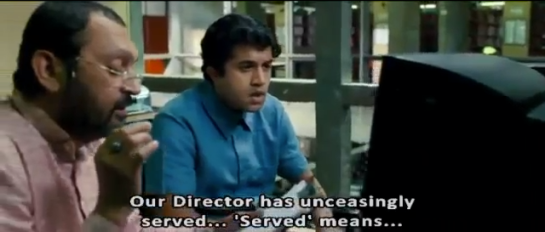
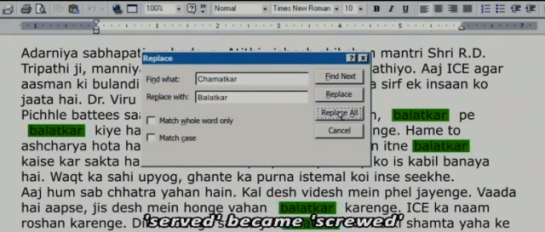
Rancho decides to use a masterplan to bring Raju back (and, as a side effect, humiliate Chatur). Chatur goes to the school librarian to create a high, lofty speech to honor the school’s higher authorities. Rancho and Farhan distract the librarian and Chatur, and Rancho quickly uses the “Find and Replace” button in order to replace the honorary, respectful terms with crude language. The altered speech is spoken, much to the delight and laughter of the students in the audience and the enraged nature of Virus, at the ceremony. At the end of the ceremony, the three musketeers reconcile and hang out at their usual engineering tower spot.
A fourth visitor, mortified at offending the principal and being made a laughingstock at school, angrily approaches them and makes a bet to see who will succeed more in life ten years later. He uses a knife to etch 5 September on the wall (the etched date seen in present day), and leaves the boys with his looming challenge.
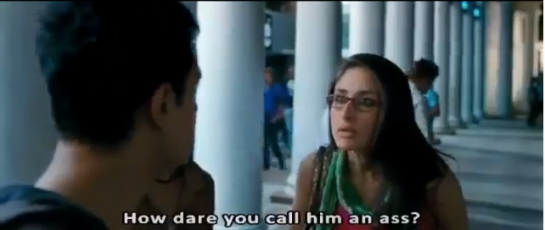
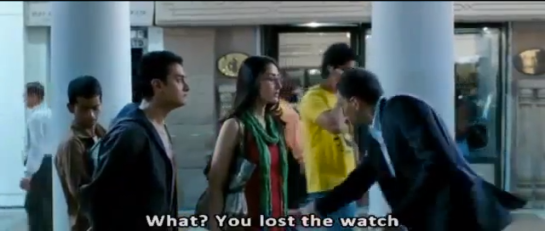
Meanwhile, Pia and her fiance Suhas (the man with spoiled leather shoes) are choosing an engagement ring when Pia spots Rancho in the crowd. Angrily, she confronts him about the speech that insulted her father. Rancho throws out an insult about her fiance, and states that he only cares about her because it makes him look financially better-off. To prove his point, Rancho takes off Pia’s watch and calls Suhas over, telling him that Pia lost the expensive gift. Suhas goes on an angry tirade over Pias supposed mistake, and Pia, in tears, throws him the watch and tells him to find another wrist for it.
Impressed, Rancho follows her to her motorbike when he receives a call informing him of Raju’s father’s critical condition. In a plea for her help, the two together drive Raju’s father on a scooter into the hospital, where he is luckily saved. Raju, teary-eyed, thanks Rancho for helping his father. Pia leaves the three boys in the hospital, and says farewell to Rancho. A high voice begins to sing…and we lapse into a lovey-dovey jazz number.
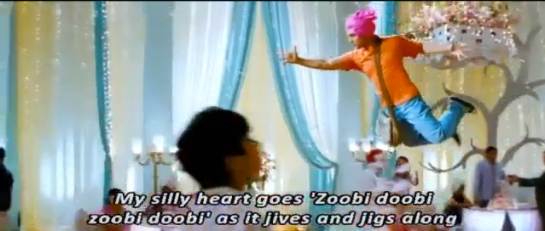
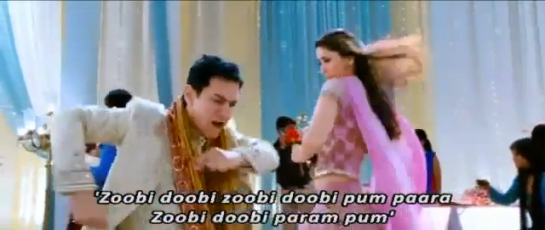
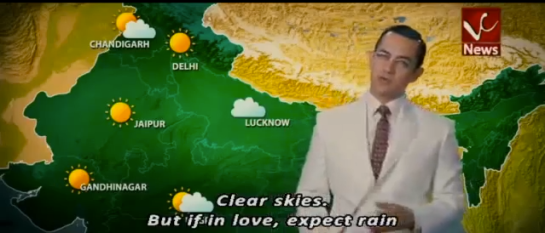
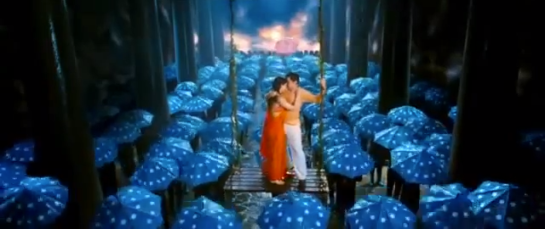
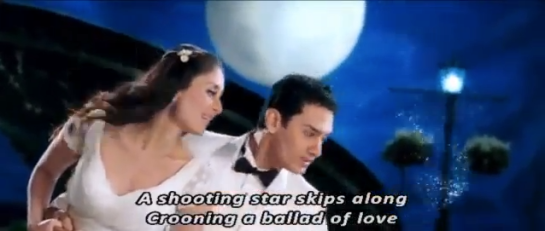
The boys spend the night at the hospital, and are thus late to their final exam. The professor, unfortunately, cannot take their tests because a strict policy against turning their tests in late. In a quick burst of thinking, Rancho asks the teacher whether he knows their names or roll numbers. The answer is negative. In one spontaneous act, Rancho throws their papers into the existing pile, mixes them up, and runs out with his two buddies. Now, it is only waiting for the results.
Rancho and Farhan are disappointed to know that they came in last place in school rankings, but feel even more disheartened when they discover that Rancho finished first place in the entire school. When it’s school picture time, Rancho sits on the distinguished right of Virus, much to Chatur’s chagrin.
We flash back to the present day, in which Farhan and Raju enter the dwelling of Chanchad family, which is currently a funeral for Rancho’s deceased father. When they call out Rancho’s name, they are startled and confused to find an unfamiliar man respond to it. The odder thing is – they see a certificate of graduation from the engineering school on the family wall, and also a seemingly different school picture than they hard remembered….
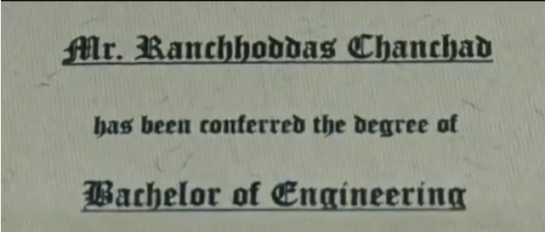
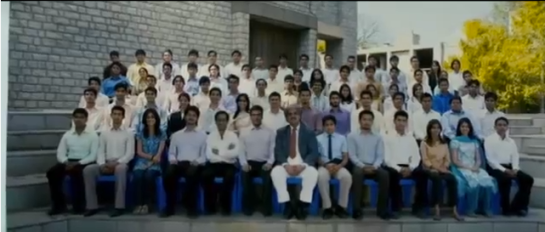
Determined to find out the truth, they quickly go back to the home and confront the new “Rancho”. Amidst a hilarious bout of possible toilet-flushing his father’s ashes, “Rancho” sits down with the two boys and gives them the true story of what actually happened.
It turns out that the Rancho that they knew, ten years ago, actually was not the real Rancho, but the family’s gardener’s son taking his identity after a teacher’s accidental discovery of a sixth grade student completing tenth grade math. The son (nicknamed Chhote) is ordered by the real Rancho’s father to attend the Imperial College of Engineering, and to graduate with a degree. Once the degree is sealed, Chhote would disappear and the real Rancho would utilize this academic certificate in order to secure a career. The real Rancho gives the duo a new address, and the two discover that the Rancho they knew is now an elementary school teacher at a small village in Ladakh.
We flash back in time to carry on with their university years. The three boys are nearing graduation, and its a stressful and suspenseful season of potential job interviews. Virus is confident that both Farhan and Raju will not be able to receive any job offerings, and makes a bet that if either of them do, that he will shave his mustache off. At the evening, the two boys confide to Rancho their worries about their grades, and their future.
Rancho addresses Farhan first, by emptying out his backpack and drawing out a single unposted letter. It’s a letter that Farhan wrote to his favorite wildlife photographer, Andre Istvan, desiring to take on his tutelage. Rancho encourages Farhan to not “marry Engineering”, but rather seek out his true love, photography.
He then turns to Raju, and points out the number of religious rings he has on his fingers. Raju, he concludes, lives in fear of tomorrow – fear of having to provide for his ailing father, tired mother and unwed sister. Because he’s so afraid of tomorrow, he ceases to live in today.
The two friends begin snickering upon hearing Rancho’s advice, where they can’t believe that the “great and almighty” Rancho is giving them lessons when he can’t even follow his own. In his confusion, the two edge him into confessing his love for Pia, one boasting that he’ll tell his father of his wildlife photography hobby, and the other declaring that he’ll take off all his spiritual rings before his first job interview. All a little drunk, Rancho grins a little, and the next scene cuts to the boys staggering towards Virus’ house. Raju and Rancho climb up the trellis, and Rancho climbs through the window onto an occupied bed. Grabbing a hand, Rancho begins his oration of how he fell in love with Pia.
Rancho: Just listen for a moment, then I’m gone. Pia…those 22 minutes with you on a scooter were the most enchanting 22 minutes of my life. I could spend an eternity with you on that scooter. Every night, you ride into my dreams on a scooter, dressed as a bride. Instead of a veil, you lift your helmet, and come close to kiss me. But that kiss doesn’t happen.
Unidentified Hand: Why?
Rancho: Because the noses collide, and I wake up.
Pia’s sister, Mona (the owner of the hand): (Light turns on). The noses don’t collide, stupid!
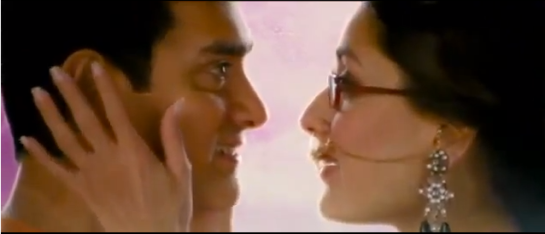
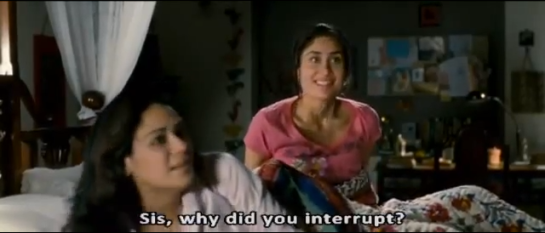 It turns out that Pia was listening as well, and Mona laughs and gives her approval for her younger sister about the startled male specimen in front of them. While the three talk, Mona feels the baby move, and excitedly tells Rancho to feel her stomach. When the two sisters explain that their father desires the boy to be an engineer, and the girl to be a doctor, Rancho chuckles at the unborn child, telling him its better to stay inside for now because the circumstances are a “circus” out in the real world with Virus being the “ringmaster”. Rancho imparts his mantra onto the fetus, and to Mona’s delight, the child kicks. Mona grabs both Pia and Rancho’s hands and places them on her stomach, as the three of them say the phrase once more. The baby vigorously responds, and all three are excited.
It turns out that Pia was listening as well, and Mona laughs and gives her approval for her younger sister about the startled male specimen in front of them. While the three talk, Mona feels the baby move, and excitedly tells Rancho to feel her stomach. When the two sisters explain that their father desires the boy to be an engineer, and the girl to be a doctor, Rancho chuckles at the unborn child, telling him its better to stay inside for now because the circumstances are a “circus” out in the real world with Virus being the “ringmaster”. Rancho imparts his mantra onto the fetus, and to Mona’s delight, the child kicks. Mona grabs both Pia and Rancho’s hands and places them on her stomach, as the three of them say the phrase once more. The baby vigorously responds, and all three are excited.
Two more individuals yell out the phrase, while doing “urine expulsion” on the professor’s mailbox. In their drunken state, the boys quickly make a dash for it, as Virus angrily almost slips on a wet stain on his front porch. The trio escape and hide at the back of a lecture hall, and fall asleep till the morning, where they each report for attendance. Raju, however, is still a little drunk from the night before, and acts oddly in front of Virus. Rancho and Farhan try to cover him, by making the excuse that Raju had pulled an all-nighter studying induction motor. To verify, Virus asks Raju to explain how induction motor begins. In response, Raju starts up his own human engine, with his mouth. Furthermore, an empty bottle of rum is found at the front of the classroom, where it is coincidentally picked up by Chatur, who shows his discovery proudly.
It’s to the office, for Raju, who faces expulsion from college. Raju pleads for one more chance, and is given one – he can place either his name, or Rancho’s name, in the letter. Raju flashes back and forth between his helpless family, and Rancho’s acts of kindness. Caught between two sides, Raju steps on the balcony, and falls to the ground below.
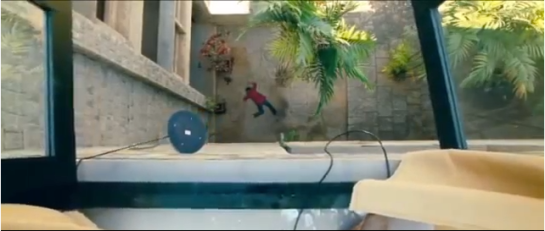
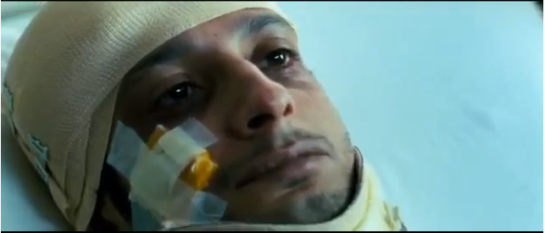
He’s immediately rushed to the hospital, and Pia gives the friends’ the diagnosis – Raju’s mind is paralyzed but his mind is alert. She encourages them to talk to Raju, in order to waken him from his inactive state. Thus begins Rancho’s series of white lies, such as giving Pia’s red scooter to his ill father. The class brings balloons and cake for a party, and upon no response, throw darts on a target of Virus’ face. Humorously, the machine records spiked heartbeat. But Pia rounds the corner, and Rancho and Farhan scramble to hide the offending apparatus. In concluding his white lies, Rancho tells Raju that his sister is to be wed to a man who requests no dowry, a man who has an interest in wildlife photography, a man that they know very well…
At this, Raju’s fingers twitch and his eyes blink. Rancho widens his eyes as Raju opens his mouth to whisper…”stop kidding”. The friends are reunited, and in joyous celebration, good news is heard. It turns out that Rancho’s unsent letter was actually sent, and that Farhan’s admired photographer Andre Istvan loved his photos and is offering an internship abroad. Meanwhile, Raju gets a job interview by a prestigious firm. Both boys, in fulfilling their earlier promise to Rancho, each set off to complete their missions – Farhan breaks the news to his father, and Raju takes off all his rings in preparation for the interview.
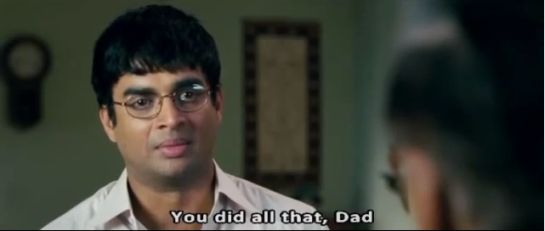
Farhan tells his father that photography is his passion, and that his reputation, money, and status, aren’t as important. He explains, when his father brings up a neighbor’s opinion, that it’s not the world’s view of him that matters, but his own family’s.
Farhan: Mr. Kapoor didn’t provide me with an air conditioner. It wasn’t him who slept in discomfort while I slept well. He didn’t take me around the zoo on his shoulders. You did all that, dad.
His father, after a sigh, tells his wife to return the expensive laptop he bought for his son…and to see whether it could be exchanged for a professional camera. Tearful, Farhan embraces his father and the two share a father-son moment.
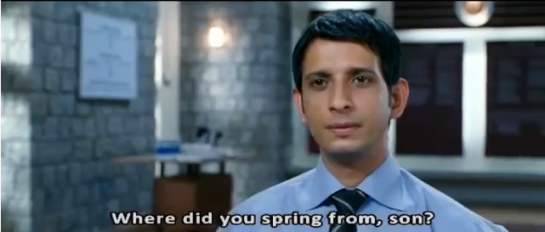
Raju frankly tells the interview committee how he ended up in his current state of paralysis, including the attempted suicide and mail-box urination. The higher-ups are a little taken aback by his honesty, but an interviewer tells him that he is willing to consider his application, if he can fix his attitude. Raju smiles a little, and tells him that after breaking many bones in his body, he has come to the conclusion that he’ll live life without fear, and this attitude he’ll keep, even if it means the forfeit of a possible career. But as he turns to leave, a voice calls him back.
Interviewer: Wait. I’ve interviewed countless candidates for 25 years. Everyone turns into a yes-man to get the job. Where did you spring from, son?
 The two friends, with tears in their eyes, offer themselves to the great “Rancho”. Rancho himself, overcome by emotion, hides behind a pillar and cries. Meanwhile….
The two friends, with tears in their eyes, offer themselves to the great “Rancho”. Rancho himself, overcome by emotion, hides behind a pillar and cries. Meanwhile….
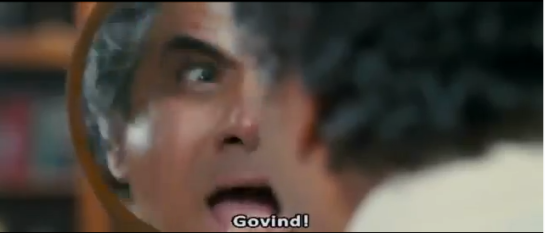
Someone’s mustache was shaved off (much the giggles of two daughters)…
Furious with this humiliation, Virus swears to create Raju’s test himself, in order to insure that he’ll fail. Pia, not tolerating her father, gets drunk enough to steal her father’s office key. She sneaks into Rancho’s dorm room, and in her inebriated state, adorably accuses him of various things.
Pia: Tell me something! Do you really feel…the noses collide while kissing? (Leans towards him…)
Rancho: (Pulls down Pia’s visor). Here…have some dhokla (a chickpea/rice ‘cake’).
Pia: (Wobbly). You Gujaratis are so cute. But why does your food sound so dangerous? Dhokla, Fafda, Handwa, Thepla, Khakhra. They all sound just like missiles. ‘Today Bush dropped two Dhoklas on Iraq. 400 dead, 200 injured’.
Rancho: (Grabbing her hand). Come.
(Leads her towards the door. She shuts the door, and turns to face him).
Pia: I can deal with Khakhra, Fafda, but your name…Ranchhoddas Shamaldas Chanchad. Yuck. I won’t change my last name after marriage!
At this, Rancho’s expression saddens. As the audience, we understand why – Rancho’s identity is a lie; his deal with his rich master forces him to leave after graduation. But Pia doesn’t know this, and comes up with all sorts of various other excuses (is there someone else? are you gay? impotent?). Rancho shakes his head at each one, and at the last, Pia takes his face in her hands and asks him to prove it…
Where we shift to the present day, where the two men realize they’ve forgotten to tell Pia. A car drive towards the opposite direction, they arrive to crash Pia’s wedding.
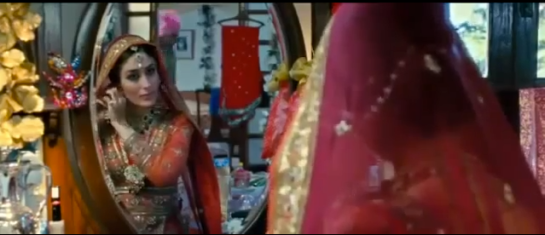
Farhan attempts to convince Pia to leave her to-be-husband, who has the same stingy personality as he did when they had first began dating. In a hilarious proof, Raju pretends to be the dry-cleaning gentleman and intentionally spills mint sauce on Pia’s fiance’s suit, which results in much childish shouting. Meanwhile, Pia walks down the aisle with none other than…Raju! Telling her to live life with no regrets, the two convince her to run away from the unhappy marriage, and join them in finding their best friend. In a hilarious bit of dialogue, the two boys alert Pia of one minor problem.
Farhan: Pia, one minor problem.
Pia: What?
Farhan: We don’t know if Rancho is married.
Pia: WHAT?
Raju (reassuringly): He won’t be married!
Pia: And if he is?
Raju: Then we’ll drop you back.
Pia: -about to strangle him-
We flash back to the past, where the two boys are shuffling about in Virus’ office, trying to locate the cheat sheet for Raju. In an attempt to find it, they call Pia, only Pia and Mona are busy and Virus sees the phone call instead. It a heart-dropping experience for us, when we see Virus see the caller ID, and discover that someone is inside his office in the middle of the night. Set out to find the lurker, Virus takes off in the middle of the rainy night, intent on punishing whoever dared set foot in his office.
Rancho and Farhan finally locate the sheet, open the sealed package, photocopy it, and quickly run back to their friend. They urgently wake up Raju, and tell them that they’ve secured the answers. But a man with a renewed purpose, Raju crumples up the paper and throws it away, telling his friends that a high score achieved without his own ability would be meaningless. Proudly, Rancho and Farhan hug him, expressing their love for his moral growth. Meanwhile, Virus opens his office and discovers the freshly resealed envelope and the blinking photocopy lights. He immediately calls the police, intent on arresting those rascals. Sure enough, when Virus breaks into the boys’ dorm, the evidence lies right in front of him, in crumpled form. In his fury, Virus sets about beating up Rancho, defining him as the culprit for the theft.
He kicks all of them out of the university, and then sets out to find who stole his office key.
When he discovers that the criminal is his own daughter, Virus looks at her with confusion. Amid bitterness and anger, Pia accuses him of being responsible for her brothers’ death, as he had over-exerted pressure on him to become something he didn’t want to be – an engineer, when his true passion had been literature. Pia runs out with the final, haunting words “he was murdered”, leaving Virus shocked and dazed.
Amidst this emotional stress, Mona begins her contractions. Unfortunately, she is stranded near the university, because of the flood, and Virus is unable to take her to the hospital.
When the boys hear Virus’ call for help, they immediately set out to help Mona. With a bit of maneuvering, they carry her to the school table, and set out to help deliver the baby as safely as possible. With the aid of a video camera, they rely on Pia’s instructions to help Mona with her labor. Millimeter grabs hot water, Rancho rips the curtains from the living room to cover her, and Raju pushes the computer screen close to the table, so the two sisters can communicate. Mona’s exhaustion, however, leaves her efforts futile. The baby still hasn’t crowned, and Pia begins to get desperate. She says that ordinarily, when mothers’ are too tired to push, the hospital would use a vacuum hose that would gently suction the baby’s head until it successfully moved past the mothers’ birth canal.
But Rancho widens his eyes when he hears the idea, because he thinks that he can make the vacuum pump. With everyone’s help, they use Rancho’s inverter to convert the electricity from the cars’ batteries into energy, and then fasten a vacuum pump to the machine. Rancho adjusts the dial to the specified strength, and with hopeful hearts, they try the contraption. In brutal agony, Mona makes a final push, and with a help of Rancho’s suction cup, they manage to succesfully let the baby into the real world.
Celebration ensues, except, after a few moments Pia realizes that the baby has a problem.
He hasn’t begun crying.
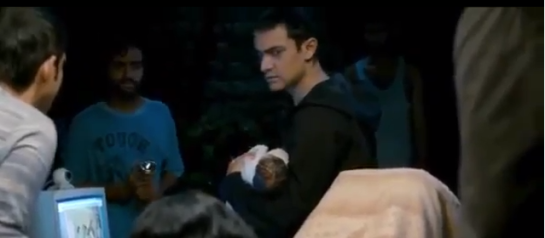
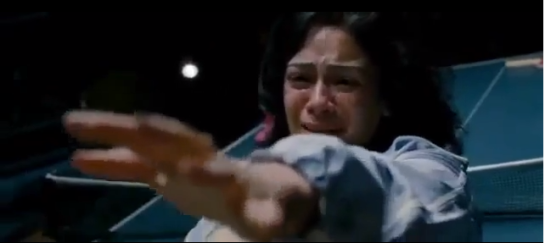
Pia tries to get Rancho to rub his back, but there’s no use.
Shock and desperation falls on Mona’s face, and the others realize the meaning of a possible still-born child. In an effort to calm her, Raju tries to use Rancho’s famous saying, “Aal iz well.” Amazingly, a foot strikes up and kicks Rancho. In realization, Rancho tells everyone to begin to chant his adage, and when everyone begins to chime in, the baby starts to wail. Ah, what a great hospital story for Mona to tell her son someday.
Amongst cheer and celebration (Virus tells his grandson to be a football player, which shows a change from his narrow-minded view of men becoming engineers), Rancho attempts to slip away. But before he goes, Virus runs after him and concedes his position in their battle. As a token of his acknowledgment of Rancho’s achievement, Virus surrenders the astronaut’s pen, along with the answer that Rancho had desired in the beginning – that the pencil’s broken tip would serve as a hazard to astronauts, potentially getting into their eyes and mouth.
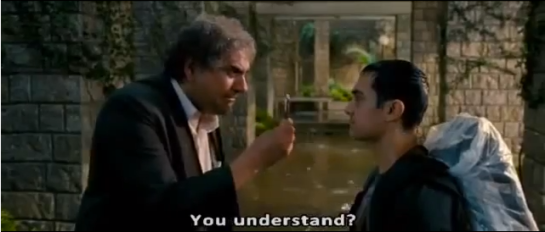
Graduation commences, and Rancho slips away once and for all.
And here is where we end up in our present state, where the group of four finally arrive at Rancho’s purported location, a small village. Chatur scoffs at Rancho’s occupation as a school teacher, snobbily boasting of his merger with the famous and phenomenally successful Phunsukh Wangdu, a scientist with a long-list of patents under his belt. Farhan, Raju, and Pia smile in wonder at the scene before them, as small children use machines, such as a bicycle, to grind wheat. A young man finds the three of them, and smiling brightly at their arrival, leads them to Rancho’s office.
In his office, the young man tells them that Rancho has been keeping up with their day to day lives, as he reads Farhan’s books, shows the children Raju’s blog, and still has Pia’s motorcycle helmet. Pia looks at the young man with confusion, wondering how he knows knows them so well. The young man explains, while smiling, that “Millimeter” has now become “Centimeter”.
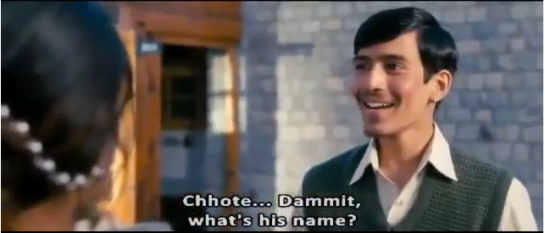 Ha!
Ha!
The boys embrace him, while Pia looks on with tears in her eyes.
When asked on how he ended up with Rancho, Millimeter (or should I say, Centimeter), relates the story of how Rancho gave him a note and an address, asking him if he wanted to continue his studies. Millimeter agreed, and thus, has his current job as sort of an assistant to Rancho.
And speaking of that bastard….
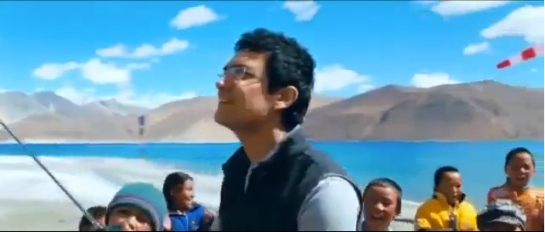

Pia finds him flying a model airplane with a few children, and rides her motorcycle towards him. Hahaha. Exactly like his dream. Rancho freezes when he sees Pia riding towards him from a distance, and tells the children to take-over the controls. She takes off his helmet, leans towards him slowly, and…
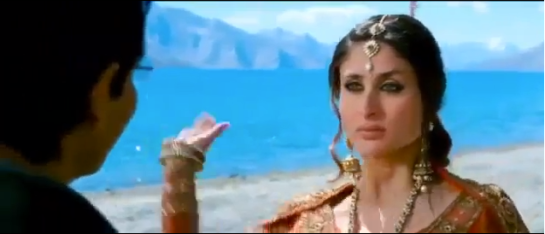
…slaps him.
HA! The perfect revenge.
Rancho, in his adorably chastised state, endures Pia’s verbal assault. A moment later, Pia asks whether Rancho’s currently in love. A little embarrassed, Rancho nods. At his assent, Pia’s face falls, as she asks who it is.
Rancho: You.
Eee! Pia passionately kisses him (Rancho awkwardly holds his hands to the side).
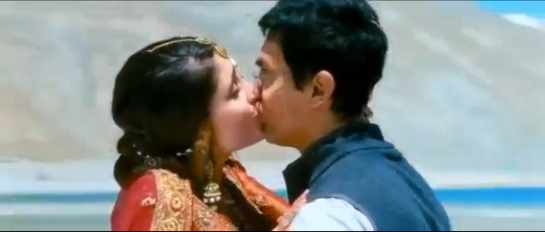 Farhan and Raju find Rancho a moment later, and each deliver their own punishment. Chatur, a little bit physically incapacitated from the spoon-urine experiment (it’s probably a good lesson for him), stumbles up towards them to triumphantly deliver the treaty they had promised years earlier – for Rancho to sign that he had lost (in terms of being less successful). More amused than angry, Rancho takes out his pen and signs the contract. Chatur, at the realization that he holds Virus’ astronaut pen, snatches it from his hand, declaring that the writing instrument was for “winners”, not “losers”. Sneeringly, he takes Rancho’s signature and stalks back to his car, in an excellent mood for his upcoming deal with Phunsukh Wangdu.
Farhan and Raju find Rancho a moment later, and each deliver their own punishment. Chatur, a little bit physically incapacitated from the spoon-urine experiment (it’s probably a good lesson for him), stumbles up towards them to triumphantly deliver the treaty they had promised years earlier – for Rancho to sign that he had lost (in terms of being less successful). More amused than angry, Rancho takes out his pen and signs the contract. Chatur, at the realization that he holds Virus’ astronaut pen, snatches it from his hand, declaring that the writing instrument was for “winners”, not “losers”. Sneeringly, he takes Rancho’s signature and stalks back to his car, in an excellent mood for his upcoming deal with Phunsukh Wangdu.
When his friends groan at this “Phunsukh Wangdu”, Rancho states matter-of-factly, that he is the very same man. Farhan, Raju, and Pia all look at him, surprised. The surprise turns into elation, as the three musketeers decide that it is time to get back at Chatur. Ingeniously, Rancho uses his phone (which is registered as Phunsukh Wangdu’s number) to call Chatur. He tells him in a serious tone that he cannot sign the merger because…Chatur has his pen.
Chatur comes to the slow horrid realization that Rancho is Phunsukh Wangdu, as he comically tries to use the underwear trick to garner respect from his new leader.
And the three boys laugh.
And all is well.
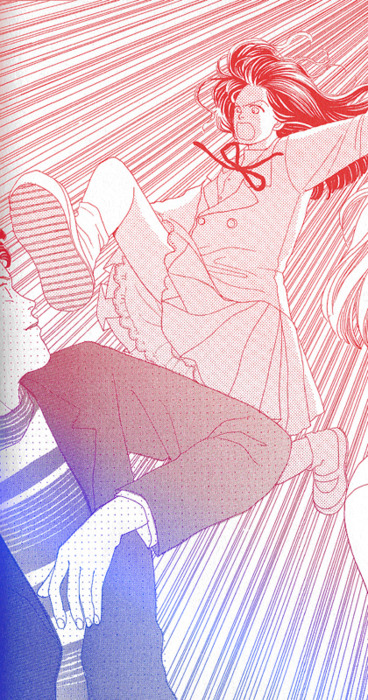 Okay, this scene gets me giggling every time, possibly because of the slow-motion shot of Makino’s punch, replete with Domyouji’s defeat on the floor, and his accompanying facial expression of confusion to shock.
Okay, this scene gets me giggling every time, possibly because of the slow-motion shot of Makino’s punch, replete with Domyouji’s defeat on the floor, and his accompanying facial expression of confusion to shock.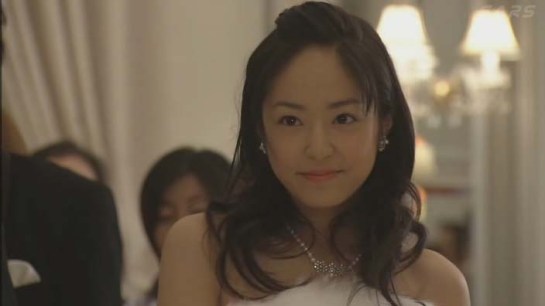 Domyouji is irritated, Rui is appreciative, and Domyouji’s observation of his best friend’s gaze towards Makino causes a flare of jealousy, to which escalates into a bit of a shuffle between the two F4 boys. Domyouji’s insult of Makino, and subsequent brush-off of Shizuka’s defense causes Rui’s consternation, and the two seem close to duking it out when Makino intervenes. A trip of balance, much to shock of the party-goers (not to us drama-watchers, we could have seen this a mile away), this is the resulting scenario:
Domyouji is irritated, Rui is appreciative, and Domyouji’s observation of his best friend’s gaze towards Makino causes a flare of jealousy, to which escalates into a bit of a shuffle between the two F4 boys. Domyouji’s insult of Makino, and subsequent brush-off of Shizuka’s defense causes Rui’s consternation, and the two seem close to duking it out when Makino intervenes. A trip of balance, much to shock of the party-goers (not to us drama-watchers, we could have seen this a mile away), this is the resulting scenario: